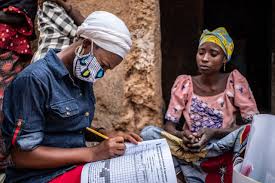The Federal Government has disclosed that approximately $19 million is required to effectively combat Neglected Tropical Diseases (NTDs) in Nigeria, which account for half of Africa’s burden and a quarter of the global total.
This was revealed on Thursday by the National Coordinator for NTDs at the Federal Ministry of Health and Social Welfare, Fatai Oyediran, during a high-level advocacy meeting with health commissioners from the 36 states and the Federal Capital Territory (FCT) in Abuja.
Mr. Oyediran emphasized that with adequate funding and strategic implementation of the NTDs master plan (2023-2027), Nigeria could eradicate the diseases that disproportionately affect impoverished communities.
“Nigeria needs about $19 million to effectively tackle NTDs,” he said. “If resources are mobilized and the master plan fully implemented, NTDs will become a thing of the past.”
Neglected Tropical Diseases, a diverse group of conditions caused by pathogens such as bacteria, viruses, parasites, and fungi, predominantly affect communities with poor sanitation, unsafe water, and substandard housing.
Some of these diseases include Onchocerciasis, lymphatic filariasis, soil-transmitted helminthiasis, and schistosomiasis.
Globally, about 1.7 billion people are affected by NTDs—three times the number impacted by HIV, tuberculosis, and malaria combined.
In Nigeria, two out of every three citizens live with at least one NTD, Mr. Oyediran said, describing the diseases as a major obstacle to health and economic productivity.
“These diseases are linked to poverty and disproportionately affect children and women. Addressing them requires robust political will, funding, and coordinated efforts,” he noted.
Mr. Oyediran identified inadequate funding as a significant obstacle to combating NTDs. He called for increased budgetary allocations at federal and state levels and urged health commissioners to advocate for dedicated funding lines for NTDs in t
“One major challenge has been inadequate funding,” he said. “There are 21 diseases grouped under NTDs, each with unique characteristics. Adequate funding is critical to implementing strategies for their control.”
Stuart Halford, Director of Advocacy and Resource Mobilisation at United to Combat NTDs, reiterated the importance of funding, noting that while health systems face many competing priorities, addressing NTDs is vital to preventing economic and productivity losses.
Highlighting progress in some states, the Abia State Commissioner for Health, Enoch Uche, disclosed that the state had achieved significant milestones in eradicating Onchocerciasis and lymphatic filariasis following a decade of mass drug administration.
“We began preventive drug administration after case mapping in 2012, and by 2022, Abia State was certified to have broken the transmission of Onchocerciasis and lymphatic filariasis,” Mr. Uche said.
Similarly, Kwara State Commissioner for Health, Amina Ahmed, noted that her state has eradicated both diseases and is reallocating resources to tackle other NTDs.
“NTDs have historically been underfunded, but unless we refocus on them, eradication efforts will be compromised,” Ms. Ahmed warned, emphasizing the need for sustained commitment.
As the advocacy meeting continues, stakeholders are optimistic that the renewed focus and mobilization of resources will strengthen Nigeria’s fight against NTDs.
However, they stress the urgency of allocating the $19 million needed to ensure the full implementation of the national master plan and secure a healthier future for millions of Nigerians.
Do you want to share a story with us? Do you want to advertise with us? Do you need publicity for a product, service, or event? Contact us on WhatsApp +2348183319097 Email: platformtimes@gmail.com
We are committed to impactful investigative journalism for human interest and social justice. Your donation will help us tell more stories. Kindly donate any amount HERE




